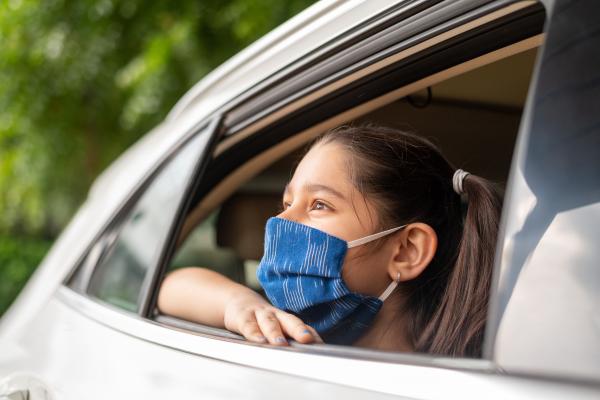The COVID-19 pandemic has put global travel to a halt. As the world reopens from a long winter of lockdowns and travel restrictions, we can see a rise in demand for travel. The crisis can be a blessing in disguise for travel marketers who can leverage the reopening to their advantage. Analysts like McKinsey, OPEC, and Accenture view the pandemic as a golden opportunity for travel marketing companies to improve customer experience as it will be a key brand differentiator post-COVID. So, what marketing tactics can you deploy to make the most of the COVID crisis? Here are 5 strategies that work in post-covid travel sales.
H2: Rethink and Rebuild Your Brand Priorities
As a travel company navigating the crisis, you should view the COVID19 pandemic as a collective human experience that cuts across cultural and linguistic boundaries. You may need to understand the sentimental shifts in consumer behavior in tourism and empathize with your client’s concern. Reassure clients of their wellbeing in post COVID19 travel and try to answer any queries regarding travel miles expiry, flight cancellations, hotel cancellations, rebookings, refunds, and insurance. Make sincere efforts to educate travelers on COVID safety protocols in host countries. You can inform travelers of WTCC global safety measures aimed at boosting travelers’ confidence. Make sure to cover the available safety measures in detail across all stages of the journey, like airport check-in, boarding, arrivals, hotels, restaurants, and attractions. You can also post travel success stories of your recent clients post-COVID.
H2: Keep Your Travel Brand Relevant Until Reopening
Run short marketing campaigns to stay positively relevant during the slow reopening rather than abandon and recreate a brand from scratch. It can be as simple as sharing positive news on social media handles or designing travel polls and surveys to engage customers and gather leads. In these campaigns, you may need to trade your short-term profits for long-term client loyalty. By staying in touch with your customers, you can quickly get back in business with a sudden surge in travel demand.
You can improve your business cash flow by targeting early travelers, domestic tourists, work-from-home travelers, wellbeing tourists, medical tourists, etc., during the initial stages of reopening. Reopening is likely to open in phases; local reopening, regional reopening, continental reopening, and then global reopening to a new normal. You can align your marketing expansions with demand growth to maximize traffic conversion.
H2: Catch the Big Data Bandwagon
Big data is the next big thing in travel marketing. Big data consists of huge stacks of datasets often indexed for marketing purposes. This enormous volume of data is generated across vast networks of B2C and B2B companies like booking platforms, review websites, travel agents, affiliate marketers, hotels, aircraft companies, etc. It can provide valuable insights into traveler behavior since the 1990s. Search engines like Google and Yahoo also have massive data on tourist trends but those are usually protected by gatekeeper platforms. Countries like Singapore, Thailand, Vietnam, Indonesia, Australia, and New Zealand are closing the data-gap by freeing up big-data for public use to boost post-pandemic tourism. This can be a gold-mine for travel marketing companies who can analyze and actionize big data to gain a first-mover advantage in travel sales. You need advanced IT capabilities or a list-building service provider to sort big data into datasets that you can use for marketing.
H2: Form B2B Partnerships to Personalize B2C Clients
An important theme in post-pandemic travel marketing is to smoothen and personalize the overall customer experience. A customer’s digital experience through your brand creates a lasting impression. You should make it as frictionless as possible, even adding proactive services that deliver value to your core product. A study by Accenture points out that customers are willing to pay for predictive services to get better value. You can partner with insurance companies, local hospitals, sanitization companies, local restaurants, specialized hotels, private cab companies, COVID volunteer groups, sim card providers, and government programs to reassure your clients of their safety and well-being. Instead of trying to sell a service, explain its use case during travel and try to include multiple service providers, so your clients have the freedom to include or omit services.
B2C clients seek a more personalized B2B sales experience where they want a trusted advisor rather than a travel agent with ready-made plans. Using predictive sales to develop your core product enhances the customer’s digital journey and generates additional revenue through commissions. Developing a predictive sales model requires high levels of lead automation, big data analytics, and AI-powered algorithms to match saleable services with past consumer behavior. If your automated marketing strategy can anticipate what a consumer is looking for and match the service, consumers are willing to pay extra just for the booking experience. Predictive sales will slowly blur the line between sales and service, creating a win-win scenario for both the buyer and the seller.
H2: Digitize and Conquer
The path to recovery will be digital. Travel marketing is going to shift from content-centric to customer-centric. Content will still be at the core of websites, but advanced digitization will take the customer browsing experience to a whole new level. You can also leverage cross-organization data to gain insight into the travel booking process, consumer choices in travel bookings, and spending habits of various demographics.
You may have to seek specialized services from data vendors, analytic companies, and SEO specialists to create a fully digital ecosystem capable of making marketing decisions on your behalf. You can get ready-made UI dashboards with packaged big data, real-time analytics, AI-powered campaigns, lead automation, marketing controls, programmable bids for Google/Facebook Ads, VR tours of popular destinations, etc. The pandemic has accelerated the shift toward digitization, and market surveys show buyers and sellers are comfortable with the new digital reality.
